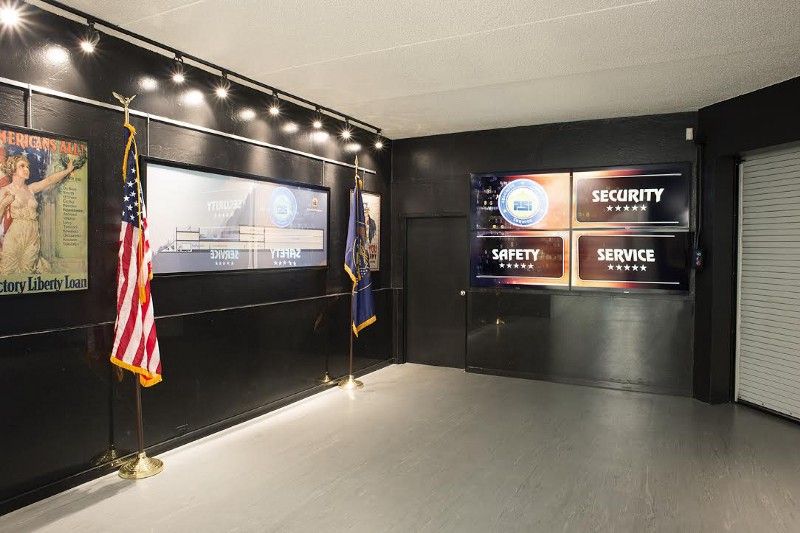Little Cottonwood Canyon is home to one of the most unique digital records/microform storage facilities in the world.
“Welcome to the vault.”
That’s what I imagine Pat Lynch says, ominously and with arms wide open, to anyone who visits the Perpetual Storage vault located in Little Cottonwood Canyon. For the last 49 years, Perpetual Storage has existed as one of the most unique storage facilities in America — a maximum security digital records and microform storage vault cut into a mountain of solid granite.
This term — mountain of solid granite — is key to understanding why Perpetual Storage is so unique. You see, the Perpetual Storage vault is housed inside what’s called a monolithic laccolith. In layman’s terms, this essentially means it’s all one rock. How rare is this? Well, there are only 3 other monolithic laccoliths in the continental United States, so I would say pretty rare. Now, why is this cool for a data storage facility? Because it can withstand virtually any natural disaster on earth. Let’s just say if the world ends in a few weeks and I somehow survive, I know where I’m going to build my new house.
“The mountain has a constant temperature, 63 degrees year round,” said Lynch. “That is one of the two environmental controls that you need for the long term preservation of records. The other component is humidity, we have de-humidification and re-humidification systems in the vault that add or take away humidity to maintain constant humidity levels.”
Perpetual Storage stores digital and microfilm records from a variety of clients, including manufacturers, financial institutions, hospitals, human genome projects, genealogy companies, medical device companies, and governments on the local, state, and federal level. Beyond the relief from natural disasters, the extent of protection offered to clients is pretty remarkable. Like, DoD-level remarkable.
“We take a multi-layered security approach, both physical and non-physical,” said Lynch. “We have various detection systems and the place is built to Department of Defense specifications. In essence, we’re a commercial SCIF, which is a Sensitive Compartmented Information Facility….We have our own armed guards. We have our own courier service, our clients cannot deliver or pickup digital media directly from the vault.”
![]()
As for PSI’s new service, Granite Cloud, aka the cloud within the mountain, it has the ability to transport lightning-fast data back and forth between PSI and its clients: “We have a very robust firewall. We have network managing and monitoring devices, all the data has to be sent encrypted in flight and is kept encrypted at rest. We do not hold the encryption keys here.”
In today’s day and age, providing backup data at the highest level means having access to internet functioning at the highest speeds. A few years ago, fiber became available in the canyon and Perpetual Storage took advantage, gaining a capacity of 9700 GB worth of bandwidth directly into the vault.
“There’s three legs to the Granite Cloud,” said Lynch. “The first leg is backup-as- a-service (BaaS) — high-speed data transmission from the client to our facility and it’s kept on low speed, spinning disk. The next iteration we’re coming out with in the next few months is called Archive-as- a-Service (AaaS), where we are the remote hands for the client and take that data off the disk, put it onto removable disk or tape, and store it in the vault. Not everything has to be online or near-line because that’s very expensive for the client to maintain. We’ll be one of the few companies in the world to have that capability, especially putting it into a vault such as ours. The third leg is Disaster-Recovery- Data-as- a-Service (DRDaaS), this depends on the timeliness of the retrieval when clients need access to their data and it would be very timely through us.”
Unless you’re a data backup nerd, you’ve probably never heard of the 3–2–1 plan. That’s okay, I’ll explain:
3: The amount of copies you should always keep of your data.
2: The different types of media you should be using.
1: The amount of backup copies you should keep offsite.
In Perpetual Storage’s case, they are the 1+ option — an offsite, backup copy that is also safe from all natural disasters. They’ve stored corporate and government records for nearly five decades and if Lynch has his way, they’ll be here until the world ends. On second thought, they will be here after the world ends. Even better.
“We’ve been in business for 49 years and seen a lot of people go in and out of business, but our business model has maintained itself,” said Lynch. “We’ve morphed it to keep up with the times, we’ve always been adding to and upgrading the vault system, security system, and policy and procedures. We think we’ve done a pretty darn good job.”




